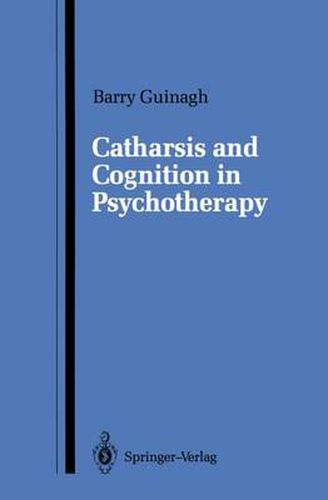Readings Newsletter
Become a Readings Member to make your shopping experience even easier.
Sign in or sign up for free!
You’re not far away from qualifying for FREE standard shipping within Australia
You’ve qualified for FREE standard shipping within Australia
The cart is loading…






This title is printed to order. This book may have been self-published. If so, we cannot guarantee the quality of the content. In the main most books will have gone through the editing process however some may not. We therefore suggest that you be aware of this before ordering this book. If in doubt check either the author or publisher’s details as we are unable to accept any returns unless they are faulty. Please contact us if you have any questions.
The origin of this book goes back to the fall of 1971. I was beginning my fourth year as an Assistant Professor of Educational Psychology at the University of Florida when I became depressed. I went into psychotherapy, and after much emotional pain, learned to grieve for my handicapped son. While in therapy I read widely in hopes of understanding and helping myself; after my recovery, I continued my interest in psychotherapy at a professional level. In 1975, I attended a workshop by Albert Ellis on rational-emotive therapy and was impressed by his approach. I decided to study rational psychotherapy with Maxie Maltsby at the University of Kentucky. After 4 months I returned to the Uni versity of Florida, teaching courses in the area of personality and beginning to write this book, which at that time was to be only about the rational approach to change. However, by early 1978, I was depressed again. I returned to my original therapist, who had recently become interested in a variation of primal therapy. I found this therapy very powerful and lengthy; 2 years later, I ended the ther apy, feeling fit, but unsure what to make of my experience. I still found the ideas in rational therapy useful, but was certain that cathartic approaches were also helpful. I returned to writing the book, this time seeking to explain how these two different approaches could both be therapeutic.
$9.00 standard shipping within Australia
FREE standard shipping within Australia for orders over $100.00
Express & International shipping calculated at checkout
This title is printed to order. This book may have been self-published. If so, we cannot guarantee the quality of the content. In the main most books will have gone through the editing process however some may not. We therefore suggest that you be aware of this before ordering this book. If in doubt check either the author or publisher’s details as we are unable to accept any returns unless they are faulty. Please contact us if you have any questions.
The origin of this book goes back to the fall of 1971. I was beginning my fourth year as an Assistant Professor of Educational Psychology at the University of Florida when I became depressed. I went into psychotherapy, and after much emotional pain, learned to grieve for my handicapped son. While in therapy I read widely in hopes of understanding and helping myself; after my recovery, I continued my interest in psychotherapy at a professional level. In 1975, I attended a workshop by Albert Ellis on rational-emotive therapy and was impressed by his approach. I decided to study rational psychotherapy with Maxie Maltsby at the University of Kentucky. After 4 months I returned to the Uni versity of Florida, teaching courses in the area of personality and beginning to write this book, which at that time was to be only about the rational approach to change. However, by early 1978, I was depressed again. I returned to my original therapist, who had recently become interested in a variation of primal therapy. I found this therapy very powerful and lengthy; 2 years later, I ended the ther apy, feeling fit, but unsure what to make of my experience. I still found the ideas in rational therapy useful, but was certain that cathartic approaches were also helpful. I returned to writing the book, this time seeking to explain how these two different approaches could both be therapeutic.